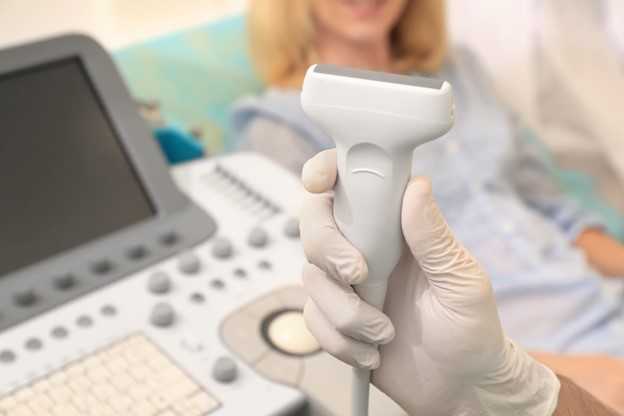Understanding an ectopic pregnancy is crucial in easing the anxiety many women feel. Recognizing what is happening and learning the signs can truly help. This understanding can lessen fears, especially with so much information online.
The internet has countless stories, and not all of them are correct. Offering straightforward and factual information plays an important role. Knowing the basics can help manage stress and prepare a woman mentally.
Let's discuss ectopic pregnancy, covering what it is and how it’s diagnosed. It's a journey that can be tough for anyone going through it. Identifying symptoms and grasping the diagnosis process make all the difference.
Having emotional support is vital in enhancing overall wellbeing during this time. By clearing up myths and providing facts, we create a path to a better experience.
Understanding Ectopic Pregnancy
An ectopic pregnancy occurs when a fertilized egg mistakenly grows outside the uterus. Most often, it takes place in one of the fallopian tubes, which is why many call it a tubal pregnancy. This isn't the correct location for growth, so medical attention is necessary.
Ectopic pregnancies typically happen in the fallopian tubes but can also occur elsewhere like the abdomen or cervix. In these instances, it's riskier because these areas lack suitable space and support for development, making early diagnosis crucial.
Signs of an ectopic pregnancy include sharp abdominal pain and spotting that can confuse because these symptoms are similar to normal pregnancy ones. Yet, in an ectopic pregnancy, the pain might be intense, and bleeding could become heavier. Seeking medical advice at the appearance of these symptoms is critical.
The Diagnostic Process for Ectopic Pregnancies
In the beginning, patients often ask how this could occur. Many feel nervous and afraid when they hear about an ectopic pregnancy. They worry about their health, the unborn baby, and future chances. Doctors' reassurance can calm many of these fears. It's crucial for patients to feel both understood and informed.
Doctors use simple diagnostic tests for checking ectopic pregnancy. An ultrasound helps them see where the pregnancy is located. Blood tests show how pregnancy hormones are developing in the body. If hormone levels rise too slowly, it may indicate an issue. Both ultrasound and blood tests are easy and low on discomfort.
These tests provide safety and accuracy with very few risks involved. Ultrasounds help doctors clearly view organs in the pelvis, giving precise insight on pregnancy placement. Blood results back up what ultrasounds reveal by confirming hormone levels. Trust in the procedure can ease anxiety significantly.
Treatment Options for Ectopic Pregnancy
There are medications available for early ectopic pregnancy. It helps the body absorb the tissue naturally and safely.
For pregnancies in the tubes that are more advanced, surgery is necessary. In these cases, doctors use laparoscopy with a tiny camera and small cuts.
Physically recovering from an ectopic pregnancy needs rest and proper care. Family support and professional help can ease the emotional healing process.
Monitoring mental health after treatment is highly important. Counseling helps many who face distress or vulnerability after such pregnancies.
The Importance of Early Detection and Treatment
Identifying the early signs of an ectopic pregnancy can truly change outcomes. Left untreated, this condition could cause a tubal rupture, leading to serious internal issues like bleeding and extreme pain. In some cases, it might become life-threatening. So, acting quickly and getting medical advice is very important.
Waiting on treatment can increase health risks, possibly causing lasting damage to reproductive organs. The longer it's unaddressed, the more complicated treatment could be.
Detecting an ectopic pregnancy early offers more treatment choices that might be less invasive. When caught early, medications like Methotrexate may work well to avoid heavier surgical treatments. Also, quick intervention raises the chances of keeping fertility safe and lowers the chance of complications. This sets the stage for healthier pregnancies in the future.
Recognizing initial signs can be life-saving. Ectopic pregnancy symptoms might feel like sharp pain below the belly, unanticipated bleeding, or feeling dizzy and tired. Should these symptoms appear early in a pregnancy, it's crucial to consult your doctor immediately. Keeping track of unusual symptoms helps doctors identify issues faster.
Encouraging Regular Health Check-Ups
Routine gynecological exams are crucial for every woman's health. These visits can catch issues early, like an ectopic pregnancy sign, which need prompt attention. Health experts have skills to identify problems when they first arise.
Making regular exercise part of your routine goes a long way. Eating balanced meals regularly can help your overall health. Paying attention to any body changes regularly is vital too. Simple lifestyle tweaks are key in maintaining good reproductive health. Routine tests and body awareness help prevent further complications.
India offers many resources to support women's health needs every day. Services from the government and community programs provide great assistance. NGOs often host workshops focusing on various health topics and early care. These programs focus on issues like ectopic gestation and other key areas. Access to information empowers women for informed decisions about their health.
Conclusion
An ectopic pregnancy is a tough medical condition needing early care. Early diagnosis helps reduce health risks and improve treatment success.
Always speak with your doctor if any signs of problems happen. Seek help when you show any symptoms tied to an ectopic pregnancy.
Support groups can give emotional help and useful info for those affected. Sharing stories is important to spread awareness of ectopic signs and outcomes.
Prashanthi Hospital offers quality care and helps patients fully understand their treatment journey, focusing on women's health awareness in India.


